Malaysia Leads the Way: Setting the Global Standard For Sustainable Palm Oil At UNFCCC COP29
At UNFCCC COP29, the Malaysian Palm Oil delegation led impactful discussions on sustainable palm oil production, unveiling the Net-Zero Transition Study and reaffirming Malaysia’s commitment to carbon neutrality, biodiversity conservation, food security, and equitable economic growth.
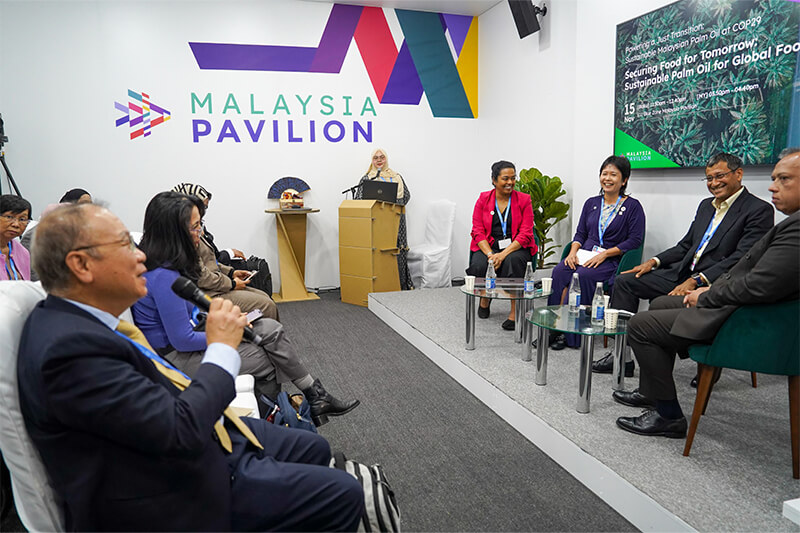
Themed 'Shift for Sustainability', Malaysia Pavilion at UNFCCC COP29 engages in discussions to emphasise the urgency of addressing climate change with immediate, bold actions.
MALAYSIA reinforced its commitment to sustainability with its dynamic presence at the 29th United Nations Framework Convention on Climate Change (UNFCCC COP29) in Baku, Azerbaijan. Spearheading the 'Malaysian Palm Oil' Day at the Malaysia Pavilion on 15 November 2024, the Malaysian Palm Oil Council (MPOC), in collaboration with key partners - FGV Holdings Berhad, SD Guthrie Berhad, and the Malaysian Palm Oil Green Conservation Foundation (MPOGCF), showcased the nation’s leadership in sustainable palm oil production.
This landmark event emphasised Malaysia’s pivotal role in producing Certified Sustainable Palm Oil (CSPO) and advancing global goals related to climate action, economic resilience, and food security.
Showcasing Leadership on a Global Stage
The Malaysia Pavilion was a focal point for critical discussions, hosting global leaders, policymakers, and sustainability experts. It underscored Malaysia’s comprehensive approach to sustainability, which balances environmental responsibility with economic empowerment.

The agenda reflects a commitment to addressing local and global challenges, from reforestation initiatives to empowering smallholders. Collaborators like FGV Holdings Berhad and SD Guthrie Berhad plays critical roles in advancing these efforts, showcasing the collective dedication of the Malaysian palm oil industry.
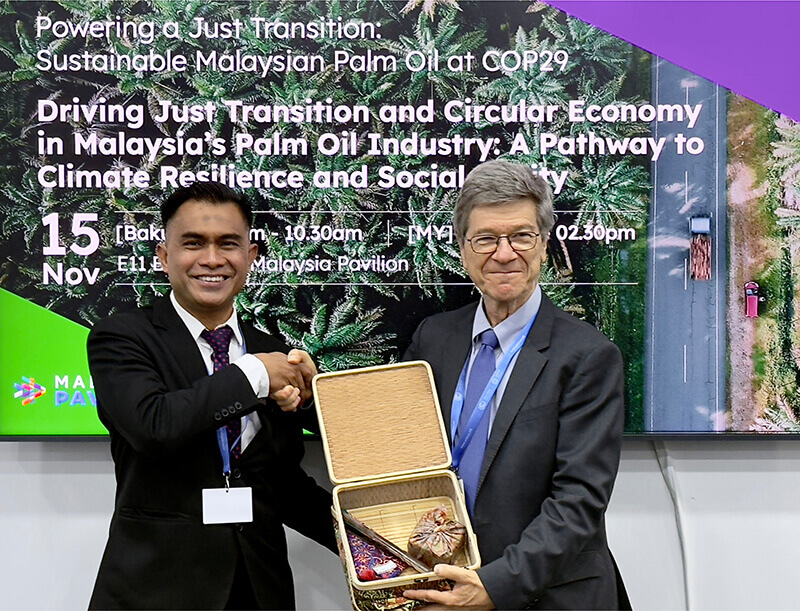
Dato’ Abdul Hadi Omar, Deputy Secretary General (Strategic Planning & Management) of the Ministry of Plantation and Commodities presents a token of appreciation to Prof. Jeffrey Sachs, President of the United Nations Sustainable Development Solutions Network (UNSDSN) at the Malaysia Pavilion, UNFCCC COP29. It symbolises Malaysia’s shared commitment with global leaders to advancing sustainable palm oil production and climate action goals.
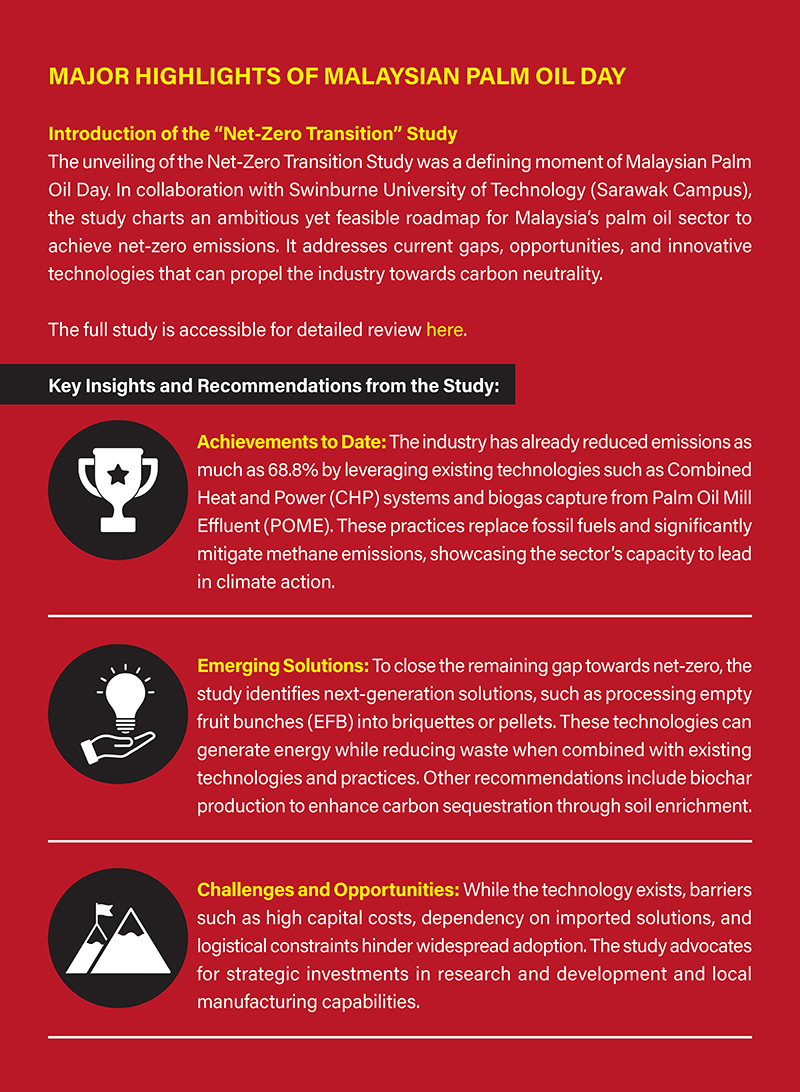
Dato’ Abdul Hadi Omar, Deputy Secretary General (Strategic Planning & Management) of the Ministry of Plantation and Commodities, officially unveiled the Net-Zero Transition Study, emphasising its importance as a cornerstone in Malaysia’s sustainable palm oil agenda. Speaking on the industry’s future direction, he remarked: “As one of the world’s largest palm oil producers, Malaysia recognises that the industry’s future must align with global environmental and social sustainability goals. By participating in UNFCCC COP29, we reaffirm our commitment to reducing the environmental impact of palm oil production, tackling deforestation, and promoting responsible land use practices.”
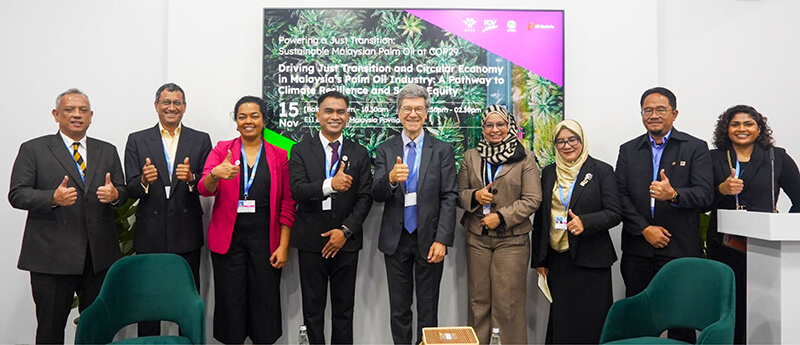
A united front for sustainable palm oil: Dato’ Abdul Hadi Omar, Deputy Secretary General (Strategic Planning & Management) of the Ministry of Plantation and Commodities, Prof. Jeffrey Sachs, UNSDSN, MPOC representatives, and collaborators including FGV Holdings Berhad, SD Guthrie Berhad, and MPOGCF join forces at UNFCCC COP29 to champion sustainability and climate action.
In a statement from the official press release, Ir. Professor Lau Hieng Ho, Pro Vice-Chancellor and CEO of the Swinburne University of Technology Sarawak Campus, highlighted the collaborative effort’s real-world impact: “Through partnering with MPOC, we have outlined a practical roadmap for sustainable practices that demonstrates Swinburne’s commitment to applying academic rigour to global challenges. It is incredibly rewarding to see our expertise driving positive change for Malaysia and the broader global community, and we are eager to continue this journey towards a sustainable future.” Professor Jeffrey Sachs added, “Every part of the world has to make an energy transformation to achieve a zero-carbon power system, and Malaysia is part of that journey. This region can lead sustainable energy solutions by working with ASEAN and integrating hydropower, solar, and other clean technologies.
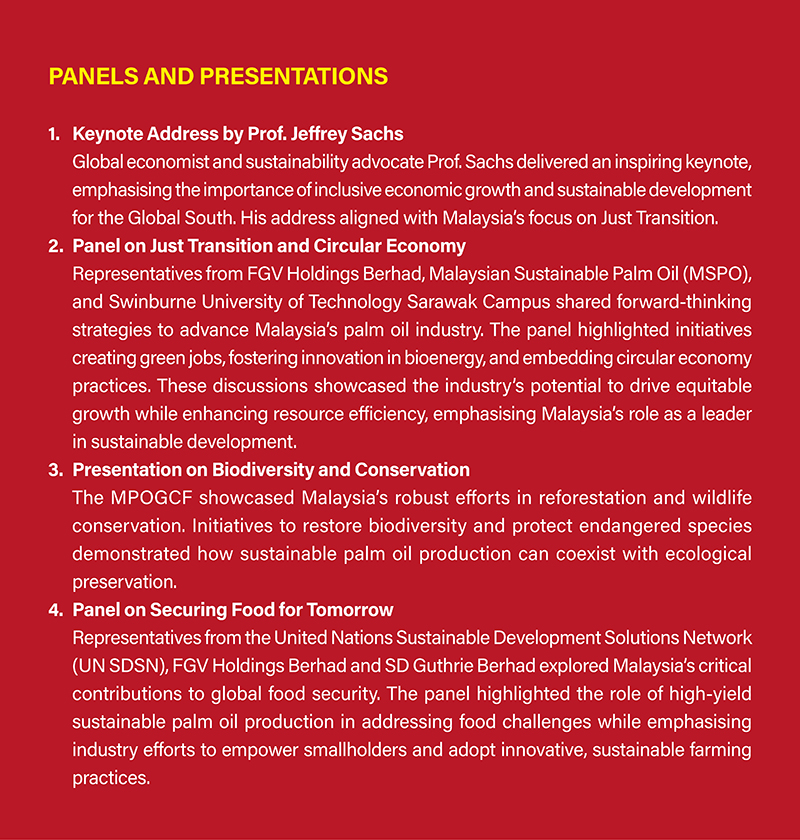
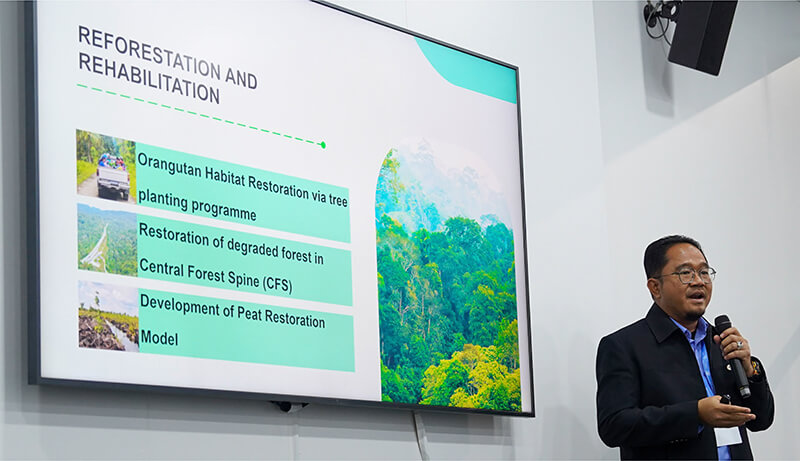
Live session during Malaysian Palm Oil Day at UNFCCC COP29 highlighted efforts in reforestation, habitat restoration, and sustainable land management by representatives from the Malaysian palm oil industry.
Commitment to Sustainability
The Malaysian palm oil industry’s engagement at UNFCCC COP29 underscored the nation’s leadership in integrating sustainability into industrial practices. Malaysia’s palm oil industry continues to set a global standard for sustainable agriculture through industry-wide collaboration, with support from partners such as FGV Holdings Berhad, SD Guthrie Berhad, MPOGCF, and many others. These collective efforts exemplify the sector’s shared dedication to meeting global sustainability benchmarks. The Malaysian Sustainable Palm Oil (MSPO) certification further strengthens this commitment by ensuring that production aligns with global environmental and social benchmarks.
As Prof. Sachs aptly remarked, “East Asia and Southeast Asia are the world’s most dynamic regions. With the technologies, biodiversity, and the will to act, Malaysia and its neighbours have the opportunity to set a global benchmark for sustainable development and prosperity.” Malaysia’s efforts serve as a model for addressing climate challenges while fostering socio-economic growth.
By implementing the recommendations of the Net-Zero Transition Study and continuing to innovate, Malaysia is paving the way for a greener, more sustainable future for the palm oil industry and beyond.
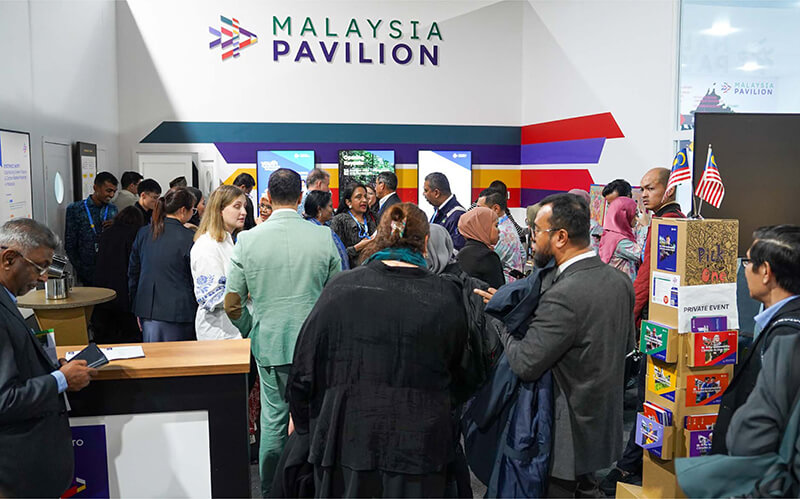
Malaysia Pavilion’s booth filled with visitors to learn more about sustainable palm oil production.







